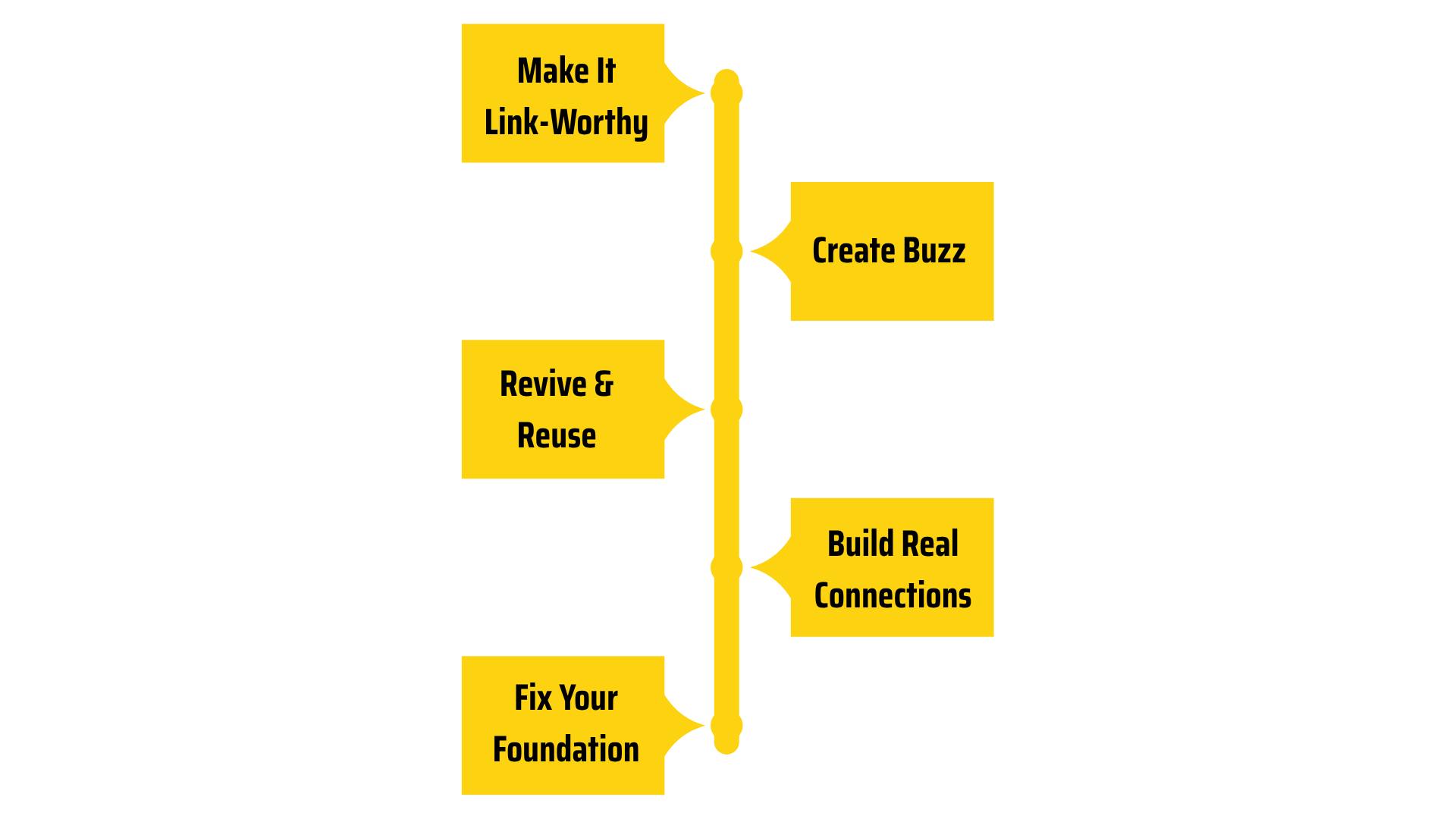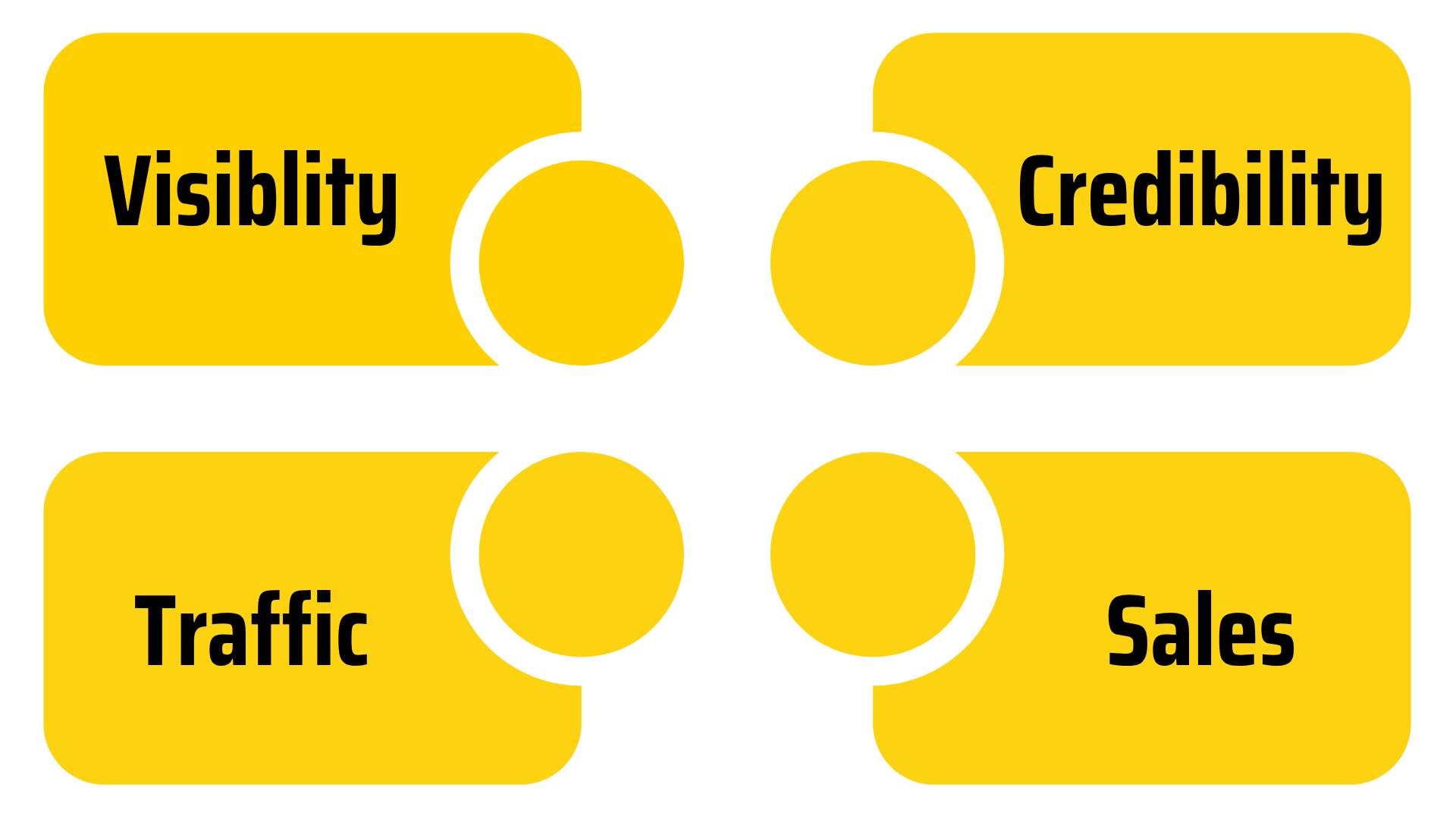Want 10,500+ visitors a month?
Then you need to level up your e-commerce link-building strategies.
65% of marketers think that link building is the hardest part of SEO. (My Codeless Website)
Sounds tough, right? But it’s worth it.
The use of backlinks is blowing up right now. Business owners and marketers use them to drive more traffic, rank higher, and boost sales.
It’s all about getting your online store noticed. By whom? Of course, search engines and real people.
Consider it a digital word-of-mouth.
And guess what?
89% of marketers create content just to build links. (SEO AI)
Why? Because more links lead to more visibility, trust, buyers, and sales.
Want these benefits? Then you must know the effective e-commerce link-building strategies.
E-Commerce Link Building
Quite similar to online networking.
But instead of business cards, you’re collecting links.
E-Commerce link building means getting other websites to link back to your online store. We call these links the “backlinks”. They’re like votes of confidence.
The more quality links you have, the better your site looks to Google.
Why Care?
“58% of SEOs believe that backlinks have a significant impact on search engine rankings.” (Search Logistics)
So, if your site isn’t in the top search results, link building might be the thing you’re missing.
Most Effective E-Commerce Link Building Strategies
Create High-Quality, Linkable Content
Visitors don’t link to boring stuff.
Let’s say your blog is full of bland product updates. No one will share that. Instead, try a helpful guide or a comparison chart.
“How to choose the perfect running shoes” always works better than “New shoes in stock”.
Because over 76% of marketers generate leads through blogging.” (Wix)
Include real stats, research, and a clear explanation.
Post infographics and videos on the content and website. Infographics get 3X more engagement than other formats (Reusser). Meanwhile, videos get 1200% more shares than texts and images combined (Vidico).
Share original insights. Run a survey. Get customer data. Use details and demographics relevant to your niche. Journalists and writers love linking to authentic data sources.
Create FAQs that truly help. Avoid 2-line answers. Rather, make them data-specific but short. It attracts links from those seeking detailed information.
Engage In Digital PR And Outreach
Got a story? Congrats. People will have something to talk about.
Sometimes, you need to give your visitors a topic to react to. Digital PR works best here. It’s about creating buzz.
Why? Because
“20% Industry specialists consider digital PR a successful link-building strategy.” (Reboot Online)
Let’s say you launch a product out of recycled ocean plastic. That’s a great hook. Reach out to eco-friendly bloggers and news outlets. They want stories like this.
Use holiday hype.
Christmas or Black Friday. Create gift guides during these occasions. For instance, “Top 10 Gift Ideas for Coffee Lovers” from your coffee store. Then pitch them to lifestyle bloggers. This will attract backlinks from relevant websites.
Pitch media people.
Try tools like Qwoted and Featured. They help you find journalists and reporters asking for sources. It’s perfect for link opportunities.
Host an event.
Media outlets love feel-good stories. Try to launch a new product. Consider donating to a cause. Partner with celebrities. These are events media outlets would love to cover.
Exploit Existing Content and Opportunities
Why create new content when you can find lost treasure?
If existing content has reached viewers’ minds, you can still make the most of it.
Let’s say you’re a fitness brand and found 20 blogs that link to outdated protein info. Fix that through a fresh guide and updated information. This can help you have many backlinks without ads.
Also, try these out.
Check unlinked emotions.
Use tools like Ahrefs. If anyone talked about you but didn’t link, shoot them a friendly email. Works more often than you think.
Fix broken links.
Find them on relevant blogs. Then offer your working article as a replacement. About 8.03% of all links break within the first 3 months (Linkody). This isn’t a good sign for content. So, keep the links in check.
Spy on competitors.
Not in a creepy way. Just check their backlinks. See where they’re getting links from. Pitch your content there, too. Use tools like SpyFu. They offer actionable insights into competitors’ SEO strategies.
Guest post with purpose.
Find blogs in your niche. Offer to write for them. Make sure your post actually offers value. Not a product dump.
Foster Relationships and Partnerships
Online or offline. Relationships always win.
The internet is still about people. Build good ones. The links will follow.
That’s why warm outreach gets you 10% to 34% response rates, whereas cold emails get 2-10%. (Growleads)
Team up with other brands.
Try to look for ones that go well with your niche. Sell running shoes? Partner with a local gym and cross-promote. Owner of makeup products? You can look for a makeup remover company.
Support local businesses.
Try local as well as SMEs. Offer to link to their site, and they’ll often return the favor with backlinks.
Start an affiliate program.
Give bloggers a cut of each sale they send. You get traffic and backlinks, they get paid.
Keep influencers close.
Don’t DM when you need a post. Engage with their content regularly. Relationships matter.
Use Technical SEO For Link Equity
Sometimes the problem isn’t your links
It’s where they’re going.
Let’s say you have good backlinks. If your site’s internal structure is messy, Google gets confused.
Remember, internal linking alone can boost traffic by up to 42%. So, that matters, too.
Use smart internal linking.
Link your blogs to product pages and categories to guides. Make Google (and users) flow through your site easily.
Fix your redirects.
Product sold out? Don’t only delete the page. Use a 301 redirect to another relevant page, typically a live URL. This keeps your link juice alive. Plus, it prevents the loss of valuable SEO rankings.
Run regular audits.
Tools like SEMrush can catch broken links, redirect loops, and other silent killers. Track them and fix strategies accordingly.
Why E-Commerce Link Building Matters?
Links build trust. Trust builds traffic. Traffic builds sales. Simple.
Visibility
More links lead to better chances of a higher ranking on SERP.
Search engines think your site is important when other sites link to it. A study by Backlinko found that
“The #1 result on Google has 3.8X more backlinks than results ranked 2-10.”
A higher rank ensures more people see your e-commerce store. That translates into more clicks. This shows that visibility drives awareness.
Credibility
When reliable sites link to you, this naturally boosts your credibility.
Customers feel safer buying from sites that others recommend. Statista even mentions that the majority of US adults trust reviews from other customers.
Also, over 99.9% of customers read reviews when they shop online (Search Engine Journal). This shows that people rely on trust signals.
Backlinks from trusted sites act like online reviews. They tell customers your site is safe and worth visiting.
Traffic
Backlinks bring direct referral traffic.
Let’s say, a blog or review site links to your product. Their readers can click and land on your page.
This traffic is more often targeted and interested.
As per HubSpot,
“Companies with blogs can get 55% more visitors and 97% more inbound links.”
It’s the same with e-commerce business.
Sales
More links lead to a series of good impacts. This includes
- Higher Google ranking
- More traffic
- Better chances of conversions
- Higher sales and ROI
Outreach Monks says that
“Websites that possess between 30 and 35 backlinks generate over 10,500 visits per month.”
With more eyes on your site, the chance of making a sale increases.
FAQs
What strategies do you use for link building?
Use a mix of guest posting, influencer outreach, fixing broken links, and creating valuable content. It’s all about staying consistent and being helpful. This is an efficient way to boost link building.
How to build backlinks for e-commerce?
Start with writing content that solves real problems. Then reach out to bloggers, fix broken links, and pitch your stories to journalists. Finally, build relationships with people in your niche.
Which of these is a tactic used in link building for e-commerce?
Broken link building, guest blogging, and digital PR. All are legit if done right.
How to build 100 backlinks in 30 days or less?
Publish a viral guide, pitch it to 50+ journalists and bloggers, run a contest with influencers, and grab unlinked brand mentions. Possible? Yes. Easy? Not really. But worth it.
What is an e-commerce link?
E-commerce link building is the process of getting high-quality backlinks to online stores. It directs users to a platform (like, website or app) where they can buy products.






